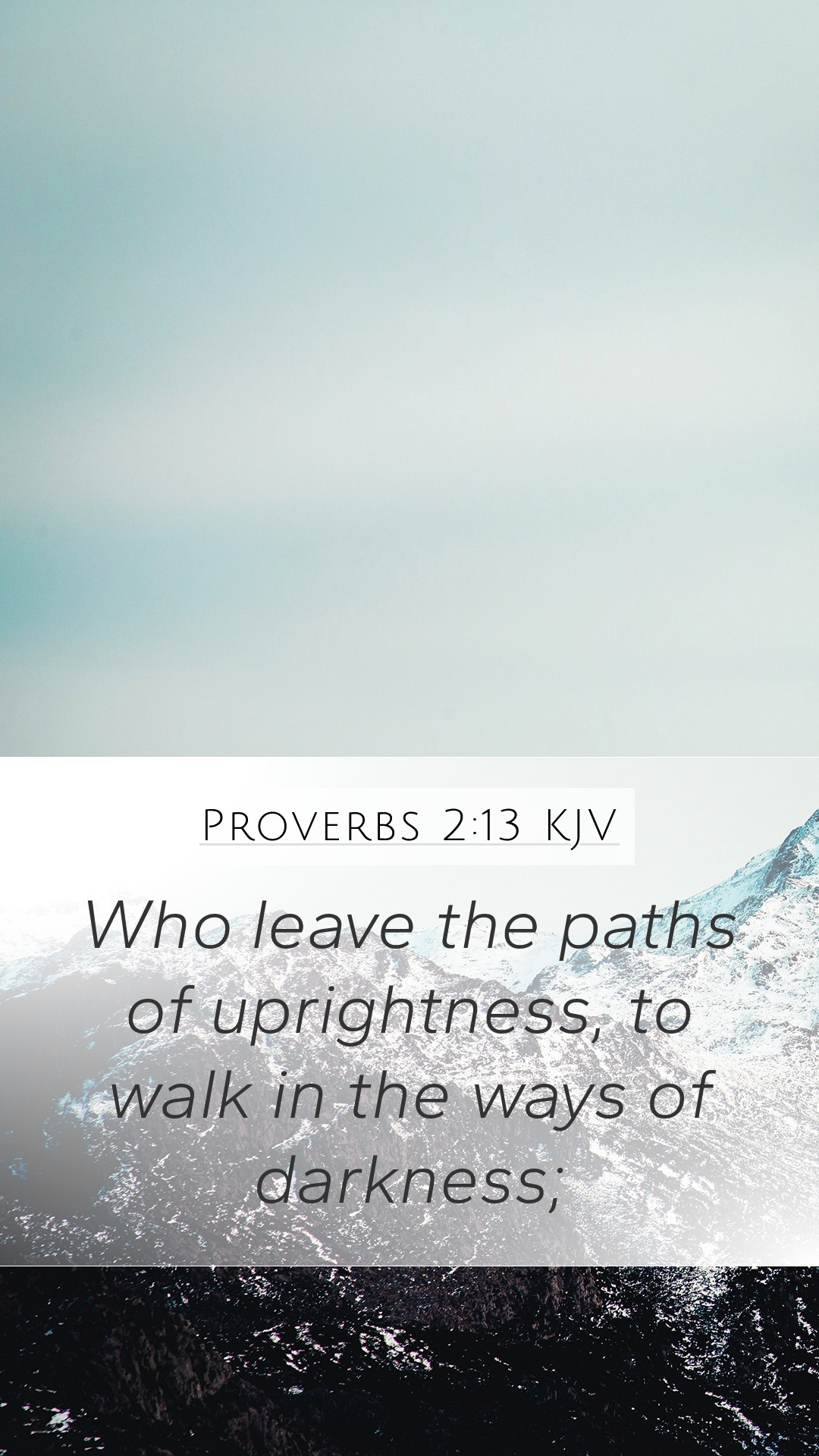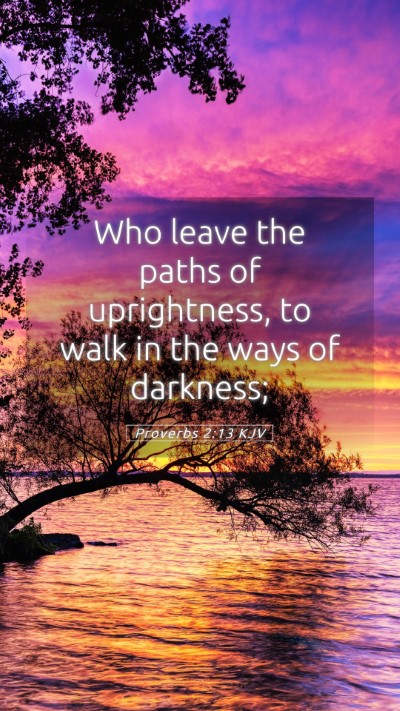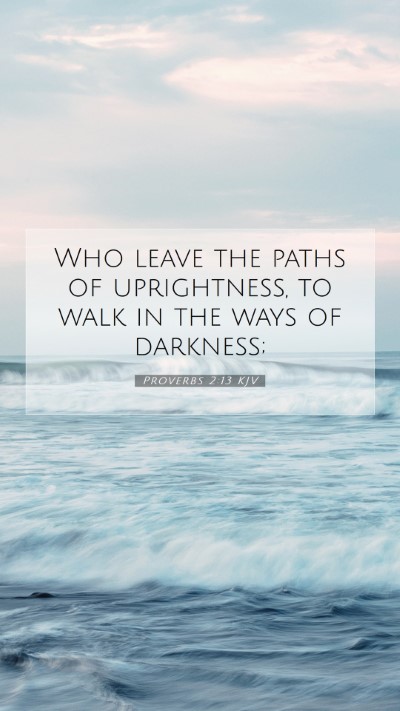Understanding Proverbs 2:13
Proverbs 2:13 states: "Who leave the paths of righteousness, to walk in the ways of darkness." This verse serves as a strong warning against the forsaking of moral integrity and the true path of wisdom. Let's explore its meaning through various commentaries.
General Overview
The verse is embedded in a context that emphasizes the importance of wisdom in one's life. It contrasts the righteous with the wicked, urging readers to cling to righteousness and avoid the allure of vice.
Commentary Insights
-
Matthew Henry:
Henry points out that the "paths of righteousness" symbolize the ways of God and virtue. Those who abandon these paths turn towards "the ways of darkness," which represent sin and moral decay. He emphasizes the danger of deviating from the divine commandments and the impending consequences of such choices.
-
Albert Barnes:
Barnes elaborates on the idea of forsaking wisdom. He interprets this as a conscious decision by individuals to ignore the guiding principles of righteousness. The “ways of darkness” are associated with ignorance and destructive behaviors that lead to spiritual and ethical downfall.
-
Adam Clarke:
Clarke describes the rejection of righteousness as a grave error that can lead individuals into a life filled with darkness and despair. He suggests that the verse serves as a poignant reminder of the choices we make and their significant impact on our spiritual journey.
Thematic Elements
This verse highlights several key themes:
- Righteousness vs. Wickedness: It distinctly delineates the paths of the righteous as illuminated and the paths of the wicked as darkened, emphasizing the bifurcation of choices in life.
- Consequences of Choices: The verse serves as a reminder that choices have consequences, particularly when it comes to moral and spiritual decisions.
- Divine Guidance: Implicit in the verse is the offer of divine guidance through adherence to God's word, which leads to enlightenment and away from the darkness of sin.
Application in Daily Life
Understanding scripture like Proverbs 2:13 can illuminate how to navigate daily decisions:
- Seek knowledge and wisdom through Bible study groups and online Bible study resources.
- Be cautious of influences that lead away from righteousness. This can apply to personal relationships, work environments, and media consumption.
- Apply the principles of righteousness to personal and community life, contributing to a society grounded in moral integrity.
Cross References
This verse can be further understood in light of these related scriptures:
- Proverbs 4:14-15 - "Do not enter the path of the wicked, and do not walk in the way of evil." This reinforces the concept of avoiding immoral paths.
- Isaiah 5:20 - "Woe to those who call evil good, and good evil." This connects to the idea of confusion between righteousness and wickedness.
- John 8:12 - "I am the light of the world. Whoever follows me will not walk in darkness but will have the light of life." This offers hope and direction against darkness.
Conclusion
Proverbs 2:13 serves as a powerful reminder of the importance of choosing the path of righteousness over the allure of darkness. By delving into biblical exegesis and various commentaries, we glean insights that help to navigate our faith and daily living. The verse encourages profound introspection and active choice-making guided by wisdom. As we engage further with these teachings through Bible study insights and discussions, we can deepen our understanding and application of Scripture in our lives.


